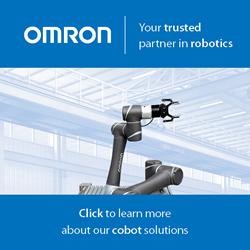Modular Remote Digital Processing Platform Easily Integrates System-specific Functionality
Aitech's ARM-based RIO-NG delivers extreme low power and exceptional reliability
Chatsworth, Calif. December 2012 - Aitech Defense Systems Inc., a pioneer in true embedded and mission critical computing technologies for environmentally-demanding defense, aerospace, space and rugged industrial applications, now offers the RIO-NG, a modular digital processing platform that can be easily customized for a variety of high-reliability military, industrial and space applications that require ultra-low power and a compact form factor.
The new Freescale Cortex M4 ARM-based RIO-NG is designed using distributed processing and parallel task completion principles, which are implemented through multiple concurrent DMA channels. Coupled with the highly parallel system-on-chip peripherals, the high efficiency CPU core is only slightly loaded by the data moving processes. Therefore, the effective MIPS available to the user application are greatly increased as opposed to a system with fewer internal DMA resources.
The efficient CPU core allows the clock rate to run much lower and still provide the performance of a much larger CPU in a higher power system. This leaves the processor free to run algorithms or to compute and process the incoming data-critical tasks in tight control loop, embedded systems.
The RIO-NG uses a common digital processing platform (CDPP) that provides standard functionality to handle all aspects of data acquisition. Personality Modules (PM) can be added to manage such process control functions as A/D and D/A conversion, RTD sensors and LVDT drives and high current interfaces. The PMs can also manage servo amp, motor and mechanism drives, providing custom, system-specific analog and digital interfaces.
These standard PMs are easily "stacked" onto the CDPP base processor platform which cost-effectively enables the CDPP to interface with all systems for overall ease of use and integration.
Philippe Kassouf, CTO for Aitech Defense Systems, noted: "The modularity and low power of the new RIO-NG enables designers to develop very creative, high reliability platforms by distributing compact embedded technologies out closer to the sensors and effectors where they couldn't before. The ability to mix and match the CDPP with the various personality modules opens up an almost limitless array of application possibilities."
The RIO-NG employs Freescale's exceptional series of ARM 120 MHz Cortex M4 CPU, which draws less than 300 mW of power while supporting up to 128 digital channels and a variety of built-in digital bus and analog interfaces for increased system integration and optimized system performance. Standard interfaces include 10/100 Base-T Ethernet - with a Power over Ethernet (POE) option - RS422 serial ports, LVDS, CANbus and USB.
With a 64-channel analog A/D input personality module and sensor excitation circuitry, the entire RIO-NG draws less than 5 W. Dimensions of this example are approximately 4.5" (L) x 3.3" (W) x 4.5" (H), with the CDPP comparable to the size of a credit card, and the entire system weighing less than 3 lbs with MIL-DTL 38999 connectors.
The rugged chassis construction protects the highly-integrated electronics inside the unit against shock and vibration up to 40 G RMS at 11 mS (Crash Safety).
RIO-NG units designed and built with space-qualified, EEE parts are currently scheduled for radiation-tolerance testing and heavy ion Proton characterization up to 200 MeV. Target values are currently 35 kRAD for low earth orbit and 100 kRAD for geostationary earth orbit, with less than one SEU in five years for both. Internal conduction-cooling is complemented by external conduction, radiation or free air-cooling.
System complexity can be further enhanced via an optional Power over Ethernet module that replaces the internal voltage/power conversion circuits and greatly reduces the power input EMI filter for smaller, lighter and lower power SwaP applications.
The RIO-NG provides over 1 MB of built-in on-chip Flash memory and 512 kB of on-chip RAM, both running at the microprocessor clock rate, allowing high-speed access to program data and optimizes the DMA channels. Interfaces to external Flash and DRAM provide much larger executable code and user data space.
For more information please call 888-Aitech-8 (888-248-3248), visit http://www.rugged.com/remote-io-next-generation-rio-ng, or e-mail sales@rugged.com.
ABOUT AITECH:
Established in 1983, Aitech offers military and space-qualified, commercial off-the-shelf (COTS) embedded computing products for rugged defense, aerospace and astronautics (space) applications as well as provides radiation tolerant and full MIL-SPEC solutions. The company provides industry-standard, open architecture VMEbus, CompactPCI and high speed serial fabric-based boards, power subsystems, mass memory, enclosures and hardware subsystem integration along with logistics, configuration control, component obsolescence and earned-value management services.
Having pioneered the development of true military VMEbus products for use in mainstream defense and aerospace applications, Aitech utilizes its broad base of off-the-shelf products and technologies to also develop customer-specific solutions, deliver superior cost-performance and reliability, and expedite time to market.
Applications for its products range from mission processors, fire control, mission control and autonomous robotic subsystems for ground vehicles as well as surface and subsurface naval platforms to tactical and strategic fixed- and rotary-wing aircraft, and low- to high-earth orbit and deep space vehicles.
Featured Product

Discover how human-robot collaboration can take flexibility to new heights!
Humans and robots can now share tasks - and this new partnership is on the verge of revolutionizing the production line. Today's drivers like data-driven services, decreasing product lifetimes and the need for product differentiation are putting flexibility paramount, and no technology is better suited to meet these needs than the Omron TM Series Collaborative Robot. With force feedback, collision detection technology and an intuitive, hand-guided teaching mechanism, the TM Series cobot is designed to work in immediate proximity to a human worker and is easier than ever to train on new tasks.
